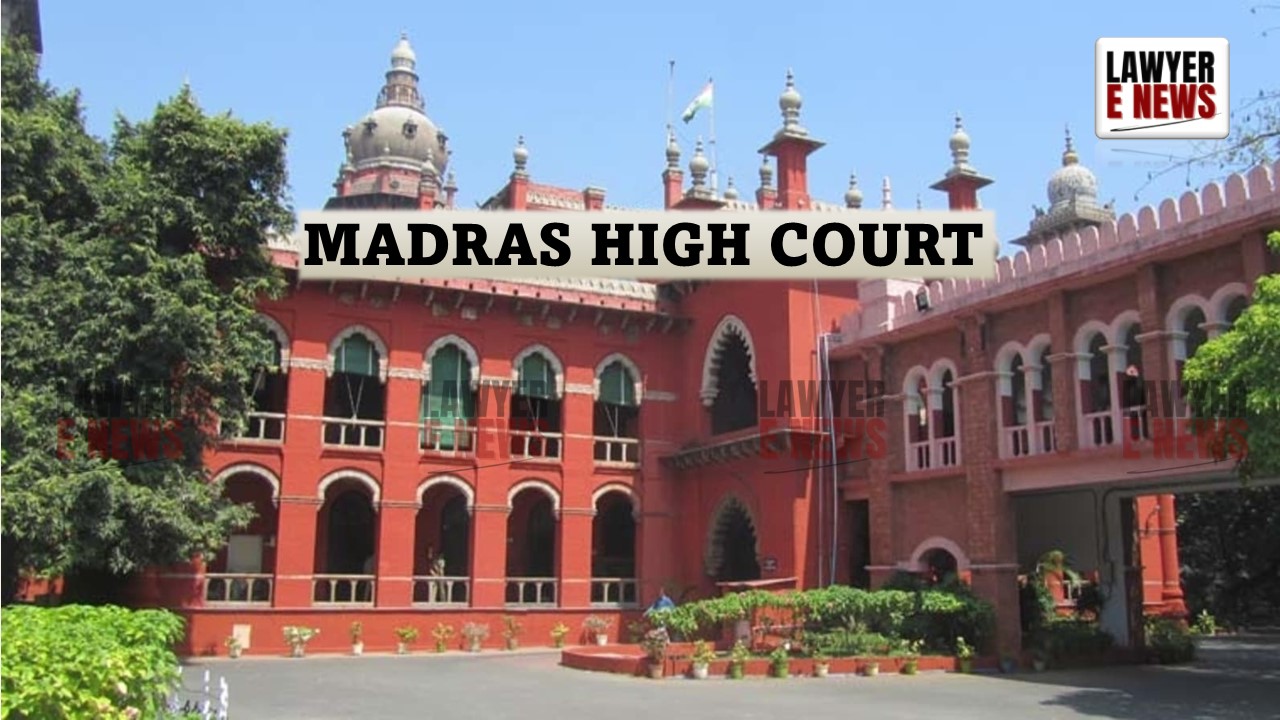-
by Admin
15 February 2026 5:35 AM



Madras High Court, in S. Kalavathi v. State by The Principal Secretary to Government, Home, Prohibition and Excise Department, Chennai & Others (W.P. No. 19668 of 2024), addressed serious allegations of abuse, torture, and forced labor of convict prisoner Sivakumar. The court, represented by Justices S.M. Subramaniam and V. Sivagnanam, directed an investigation by the CBCID and ordered the government to proceed with disciplinary actions against implicated prison officials.
The petitioner, S. Kalavathi, the mother of convict prisoner Sivakumar, filed the writ petition under Article 226 of the Constitution of India. Her son, serving a life sentence, was allegedly assaulted, placed in solitary confinement, and forced to perform domestic labor at the residence of the Deputy Inspector General (DIG) of Prisons, Vellore Range. The allegations included physical abuse by prison staff and illegal employment outside the prison in violation of Rule 447 of the Tamil Nadu Prison Rules, 1983.
Allegations of Torture and Forced Labor: The court reviewed the report by the Chief Judicial Magistrate (CJM) of Vellore, which confirmed that convict prisoners, including Sivakumar, were employed at the residence of the DIG for domestic work and subjected to abuse. The report highlighted prolonged solitary confinement and lack of due process, contravening the Tamil Nadu Prison Rules.
Violation of Prisoners' Rights: The High Court underscored that prisoners, while serving sentences, retain their basic human rights. It emphasized that abuse of power by prison authorities undermines the justice system, noting, "Prisoners are neither slaves nor to be tortured in such inhuman ways... inflicting pain and inhuman torture over powerless individuals is antithesis to Justice" [Paras 14-15].
Independent Disciplinary Action: The court ruled that criminal investigations should not impede disciplinary proceedings under service rules. It directed the respondents to ensure swift and transparent action, stating, "The pendency of a criminal case is not a bar for concluding departmental disciplinary proceedings" [Para 24].
The court ordered the CBCID to continue its investigation into the criminal case (FIR No. 1 of 2024) and requested the trial court to expedite proceedings.
The government was instructed to conclude disciplinary actions independently and promptly.
Surprise inspections were mandated to ensure compliance and prevent the future exploitation of prisoners by prison authorities.
The judgment reinforces the principle that prisoners, despite their convictions, deserve humane treatment and protection from abuse. The court's directives highlight the need for stringent oversight to prevent exploitation and uphold the integrity of the justice system.
Date of Decision: October 29, 2024
